
Francesco Bianchi is an associate professor of economics at Duke University, which he joined in 2009. Currently, his main research interests center on the role of agents' beliefs about policymakers' behavior in shaping macroeconomic dynamics, the interaction between the macroeconomy and asset markets, and the link between long-term growth and business cycle fluctuations. He is also a research associate at the National Bureau of Economic Research and at the Center for Economic and Policy Research. In 2015 Bianchi was awarded the Wim Duisenberg Fellowship for research at the European Central Bank, and in 2010 he received the Zellner Thesis Award in Business and Economic Statistics, an annual award given by the American Statistical Association to the best Ph.D. thesis dealing with an applied problem in business and economic statistics. He has held visiting positions at New York University, Northwestern University, the University of California at Los Angeles, and the University of Pennsylvania. Bianchi holds a B.A. in economics and statistics from the Università Commerciale Luigi Bocconi (Milan) and received his Ph.D. in Economics from Princeton University.

Matthew Canzoneri is a professor of economics at Georgetown University, where he chaired the economics department from 1991 to 1994 and has taught since 1985. Canzoneri has published extensively on monetary policy and on the coordination of policy between countries. From 1980 to 1985 Canzoneri was an economist in the international finance division at the Board of Governors of the Federal Reserve System; in 1984 he was a visiting professor of finance at the University of Pennsylvania's Wharton School during the spring term. Canzoneri has served as a consultant at the International Monetary Fund, the Bank of England, and the Bank of Spain. He has offered expert testimony to the U.S. House Subcommittee on Domestic Monetary Policy regarding the implications of European monetary integration for U.S. economic interests, and has testified before the U.K. House of Lords Select Committee on Economic Affairs on the coordination of monetary and fiscal policy. Canzoneri has a B.S. in mathematics from Stanford University and a Ph.D. in economics from the University of Minnesota.
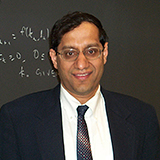
Varadarajan V. Chari has been a professor of economics at the University of Minnesota since Fall 1994. He is currently the Paul W. Frenzel Land Grant Professor of Liberal Arts and an advisor at the Federal Reserve Bank of Minneapolis. Chari's research interests are in banking, fiscal and monetary policy, and issues pertaining to economic development; he has written extensively on banking crises, exchange rate fluctuations, and international capital flows. Chari began his academic career in 1980 as an assistant professor of managerial economics at Northwestern University's J. L. Kellogg Graduate School of Management. In 1986 he joined the Federal Reserve Bank of Minneapolis as an economist, and eventually rose to the rank of senior research officer and economic advisor. In 1992 he returned to the Kellogg Graduate School as the Harold H. Hines Professor of Risk Management. After joining the University of Minnesota, he served as chair of the economics department from 1997 to 2000 and was the founding director of the Heller-Hurwicz Economics Institute. Chari is a fellow of the Econometric Society and was a production engineer at Union Carbide (India) Limited from 1974 to 1976 before pursuing his doctorate. He received a bachelor of technology in chemical engineering from the Indian Institute of Technology, and earned his Ph.D. in economics from Carnegie-Mellon University.
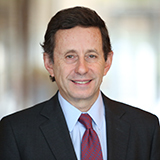
José De Gregorio is a full professor in the economics department at the University of Chile and is a nonresident senior fellow at the Peterson Institute for International Economics. He specializes in monetary policy, exchange rates, international finance, and economic growth. Prior to his two current posts, De Gregorio was the Governor of the Central Bank of Chile from 2007 until 2011; after joining the Bank's board in 2001, he became the Bank's Vice-Governor in 2003. From March 2000 until June 2001, De Gregorio was a "tri-minister" for the Chilean government, in charge of a portfolio that combined responsibility for the economy with overseeing the mining and energy sectors. De Gregorio was head of the postgraduate programs at the University of Chile's Center of Applied Economics from 1997 until 2000. He was the coordinator of economic policy for Chile's Ministry of Finance from 1994 until 1997, and was an economist in the research department at the International Monetary Fund from 1990 until 1994. De Gregorio is the author of How Latin America Weathered the Global Financial Crisis (2014). He obtained an undergraduate degree in civil engineering and a master's degree in engineering from the University of Chile, and earned a Ph.D. in economics from the Massachusetts Institute of Technology.
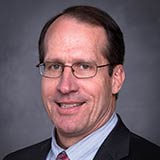
Jeffrey C. Fuhrer is an executive vice president at the Federal Reserve Bank of Boston, where he also serves as a senior monetary policy advisor and as a special advisor to the Bank's regional and community outreach functions. Fuhrer has published numerous scholarly papers on the interactions between monetary policy, inflation, consumer spending, and asset prices, and regularly participates in meetings of the Federal Open Market Committee. He joined the Bank's research department in June 1992 as an assistant vice president and economist, and from 1995–2001 headed its open economy macro/international section. In 2000 Fuhrer was named senior vice president and monetary policy advisor, and in 2006 he was named executive vice president. He directed the Bank's research department from 2001 through 2010. Fuhrer began his career at the Board of Governors of the Federal Reserve System, first as a research assistant, and then in 1985 returned as a senior economist after completing his doctorate. He earned an A.B. in economics with highest honors from Princeton University and an M.A. and a Ph.D. in economics from Harvard University.
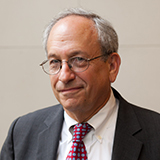
Donald Kohn is a senior fellow in the economic studies program at the Brookings Institution, where he holds the Robert V. Roosa Chair in International Economics. His research focuses on monetary policy, financial regulation, and macroeconomics. Kohn serves on the Bank of England's Financial Policy Committee per appointment by the U.K. government. He also is on a number of committees that advise U.S. government agencies, including for the Office of Financial Research, the Federal Deposit Insurance Corporation, and the Congressional Budget Office. A forty-year veteran of the Federal Reserve System, Kohn served on the Board of Governors from 2002 to 2010, the last four years as Vice Chairman. While at the Fed, he also chaired the Committee on the Global Financial System, a central bank panel that monitors and examines broad issues related to financial markets and systems. Some of the other positions Kohn held during his career at the Federal Reserve Board include serving as Secretary of the Federal Open Market Committee (1987 to 2002), director of the Division of Monetary Affairs (1987 to 2001), associate director of the Division of Research and Statistics (1981 to 1983), and chief of the capital markets section (1978 to 1981). Kohn began his career as a financial economist at the Federal Reserve Bank of Kansas City before moving to the Board in 1975. He received a B.A. in economics from the College of Wooster and a Ph.D. in economics from the University of Michigan at Ann Arbor.
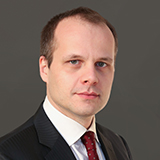
Leonardo Melosi joined the Federal Reserve Bank of Chicago's research department in 2012 as an economist, and was promoted to senior economist in 2014. He specializes in macroeconomics and in applied econometrics. From 2010–2012, Melosi had an appointment as an assistant professor of economics at the London Business School. He was a visiting scholar at Columbia University in January-February 2012 and at Northwestern University in Fall 2011; in Summer 2011 he was a Houblon-Norman Fellow at the Bank of England. Melosi continues on occasion to teach graduate courses on topics such as models involving imperfect common knowledge (Fall 2015 at the University of Warwick and Spring 2016 at the University of Texas at Austin) and econometrics (Summer 2013 at the London Business School). He frequently coauthors papers with Francesco Bianchi; their most recent article, "Escaping the Great Recession," appeared in the April 2017 issue of the American Economic Review. Melosi received a B.A. in economics from Libera Università Internazionale degli Studi Sociali Guido Carli (LUISS; Rome), an M.Sc. in international economics from the Graduate Institute of International and Development Studies (Geneva), and an M.A. and a Ph.D. in economics from the University of Pennsylvania.
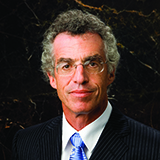
Frederic S. Mishkin is the Alfred Lerner Professor of Banking and Financial Institutions at Columbia University's Graduate School of Business. His work focuses on monetary policy and its impact on financial markets and the aggregate economy, and he is a research associate at the National Bureau of Economic Research. From September 2006 to August 2008 Mishkin served on the Board of Governors of the Federal Reserve Board. He was an associate economist with the Federal Open Market Committee from 1994 to 1997 while serving as an executive vice president and director of research at the Federal Reserve Bank of New York. Mishkin has consulted for the Board of Governors of the Federal Reserve System, other central banks throughout the world, as well as the World Bank, the Inter-American Development Bank, and the International Monetary Fund. He is the author or co-author of more than twenty books, including Monetary Policy Strategy, The Next Great Globalization: How Disadvantaged Nations Can Harness Their Financial Systems to Get Rich, and Inflation Targeting: Lessons from the International Experience. Mishkin received an S.B and a Ph.D. in economics from the Massachusetts Institute of Technology.

Giovanni P. Olivei is a vice president at the Federal Reserve Bank of Boston, where he oversees the research department's section for macroeconomics/finance. In his work as an economist, he concentrates on macroeconomics and international finance. Olivei's current work has a particular focus on inflation dynamics and on exchange rate and current account dynamics. In 1998 Olivei started as an economist in the Bank's research department, was elevated to senior economist in 2002, and in 2005 was promoted to senior economist and policy advisor. In January 2008 he assumed the duties of a vice president. During graduate school, Olivei had a 1996 and 1997 summer fellowship in the International Finance Section at the Board of Governors of the Federal Reserve System, and received a Mellon Foundation Pre-Doctoral Research Assistantship for the 1997–1998 academic year. He earned a B.A. in economics at the Università Commerciale Luigi Bocconi (Milan) and a Ph.D. in economics from Princeton University.

David Papell chairs the economics department at the University of Houston, where he is the Joel W. Sailors Endowed Professor of Economics. His fields of expertise include macroeconomics, international economics, and applied time series econometrics. Papell's current research examines topics related to the Taylor rule, the financial crisis, and the Great Moderation. Before joining the University of Houston in 1984, he taught for four years at the University of Florida. Papell has also been a visiting scholar at the International Monetary Fund and has held visiting professorships at the University of Pennsylvania and the University of Virginia. In 2016 he received a Research Excellence Award from the University of Houston. Papell is the co-author, along with Robert E. Hall, of a popular undergraduate textbook for intermediate macroeconomics. He has a B.A. from the University of Pennsylvania, and earned an M.A., an M.Phil, and a Ph.D. in economics from Columbia University.
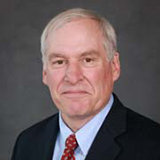
Eric S. Rosengren is the president and chief executive officer of the Federal Reserve Bank of Boston, a post he assumed in July 2007. His economic research has focused on the link between financial problems and the real economy, and he has published extensively on macroeconomics, international banking, bank supervision, and risk management. Prior to his current position, Rosengren was a senior manager in the Bank's research department and in the division of bank supervision, regulation, and credit. He joined the Bank in 1985 as an economist in the research department, was promoted to assistant vice president in 1989 and to vice president in 1991, when he also became head of the department's banking and monetary policy section. In 2000 Rosengren was named senior vice president and head of the department of supervision, regulation, and credit, in 2003 was given the additional title of chief discount officer, and in 2005 was became an executive vice president. While in the bank supervision function, Rosengren was active in domestic and international regulatory policy. He serves as a director for the United Way of Massachusetts Bay and Merrimack Valley, as the chair of Colby College's Board of Trustees, and as a member of the University of Wisconsin's Economics Advisory Board. Rosengren earned a B.A. in economics from Colby College, and an M.S. and Ph.D. in economics from the University of Wisconsin at Madison.
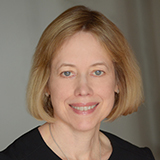
Anne C. Sibert is a professor of economics at Birkbeck, University of London. Her research has focused on central bank design, intertemporal open economy public finance, the economic and political aspects of economic and monetary union in Europe, risk premia in foreign exchange markets, political budget cycles, and the political economy of structural reform. Before joining Birkbeck in 1995, Sibert worked at the Division of International Finance at the Federal Reserve Board and taught at the University of Kansas and at Virginia Polytechnic Institute. She is a research fellow of the Centre for Economic Policy, the CEsifo Research Network, and is an International Research Fellow of the Kiel Institute for the World Economy. Previous appointments have included being a member of the Panel of Economic and Monetary Experts for the European Parliament's Committee for Economic and Monetary Affairs (2003–2014), a member of the Central Bank of Iceland's Monetary Policy Committee (2009–2012), and a member of the Council of Economic Advisors to the Opposition Front Bench, U.K. (1999–2006). Sibert has an A.B. in mathematical economics from Brown University and an M.S. and a Ph.D. in economics from Carnegie-Mellon University.
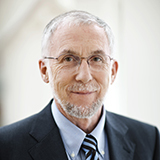
Lars E.O. Svensson has been serving as Affiliated Professor at the Stockholm School of Economics since June 2014. He specializes in monetary economics, monetary policy, exchange-rate theory and policy, and general international macroeconomics. From September to November 2016 he was a Duisenberg Fellow at the European Central Bank's Directorate General Research. From January 2015 through March 2016, Svensson was Resident Scholar in the research department at the International Monetary Fund. Between May 2007 and May 2013, he was the Deputy Governor of Sveriges Riksbank. From 2001 to 2009 Svensson was a professor of economics at Princeton University, and from 1984 to 2003 he was a professor of international economics at Stockholm University's Institute for International Economic Studies. Svensson was a member of the committee for the Alfred Nobel Memorial Prize in Economic Sciences from 1988 to 2002, and served as its chair from 1999 to 2001. In 2012 he received the Great Gold Medal of the Royal Swedish Academy of Engineering Sciences. Among his many affiliations, highlights include being a foreign honorary member of the American Academy of Arts and Sciences, a fellow of the Econometric Society, a research associate of the National Bureau of Economic Research, and membership in Academia Europaea and the Royal Swedish Academy of Sciences. Svensson has a B.A. in economics from Stockholm University, an M.S. in mathematics from the Royal Institute of Technology (Stockholm), and a Ph.D. in economics from Stockholm University.
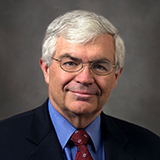
John B. Taylor is the Mary and Robert Raymond Professor of Economics at Stanford University and the George P. Shultz Senior Fellow in Economics at Stanford's Hoover Institution. He is also the director of Stanford's Introductory Economics Center. Taylor specializes in macroeconomics, monetary economics, and international economics and is well-known for his research on the foundations of modern monetary theory and policy. He is a fellow of the American Academy of Arts and Sciences and of the Econometric Society, and is a research associate at the National Bureau of Economic Research. From 2001 to 2005, Taylor was the Undersecretary for International Affairs at the U.S. Department of the Treasury. He has served as senior economist on the President's Council of Economic Advisers (1976–1977) and as a member of the Council (1989–1991). Taylor received the 2016 Adam Smith Award from the Association of Private Enterprise Education, and in 2015 Taylor received both the Truman Medal for Economic Policy and the Stanford Economics Department Distinguished Faculty Teaching Award. He won the 2012 Hayek Prize for his book, First Principles: Five Keys to Restoring America's Prosperity. Taylor received a B.A. in economics summa cum laude from Princeton and a PhD in economics from Stanford. Before joining the Stanford faculty in 1984, Taylor was a professor of economics at Princeton University and at Columbia University. He received an A.B. in economics from Princeton University, and a Ph.D. in economics from Stanford University.
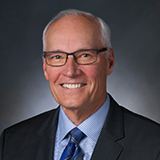
Carl E. Walsh is Distinguished Professor of Economics at the University of California at Santa Cruz, where he has been on the faculty since 1987. His research interests include monetary economics, central banking, and monetary policy. Walsh's recent work has focused on the implications of labor market frictions for monetary policy, the credibility of forward guidance, and the choice between goals and rules in monetary policy design. He has held faculty appointments at Princeton University and Auckland University (New Zealand). Walsh has also taught monetary theory and policy at several central banks, as well as at the International Monetary Fund. He is a former senior economist at the Federal Reserve Bank of San Francisco and has been a visiting scholar at the Federal Reserve Banks of Kansas City, Philadelphia, and San Francisco, as well as at the Federal Reserve Board. He is an International Research Fellow of the Kiel World Institute and a CESifo Research Fellow. He is an associate editor of the Journal of Money, Credit, and Banking and has served as co-editor of the International Journal of Central Banking and a member of the editorial board, American Economic Review. Walsh received both his Ph.D. in economics and his B.S. degrees in mathematics and in economics from the University of California at Berkeley.